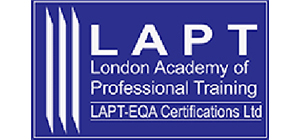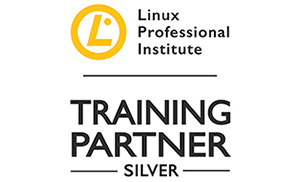Oracle Database Administration I Course + Exam
Oracle Database Administration I Certification
The Oracle Database Administration I certification training course focuses on Oracle Database Architecture, Managing Users, Roles and Privileges, Moving Data, Managing Tablespaces and Datafiles, Restricting and Sorting Data and more.
The Oracle Database Administration Certified Professional has proven theoretical understanding of Oracle Database 19c. They also possess the practical skills required to set up and manage Oracle Databases including the Oracle 19c.
During the instructor-led course, participants will learn about installation, patching, and updating Oracle Databases. This certification has two parts and has two Oracle Database Administration I and II exams. After passing the Oracle Database Administration I certification exam 1Z0-082, candidates can prepare for the second exam.
The certification course improves your skills in SQL programming, experience in database and network administration.
Logitrain delivers the Oracle Database Administration I certification training course in Melbourne, Sydney, Brisbane, Adelaide, Perth, Canberra, in-house and live online.
Prior knowledge of databases
Candidates can achieve this certification by passing the following exam(s).
- 1Z0-082: Oracle Database Administration I
The certification exam can be registered and attempted within 3 months of course/module completion at Logitrain training centre on weekdays during normal business hours (excludes public holidays)
Oracle Database Administration I – Logitrain course material
- Understanding Oracle Database Architecture – Oracle Database: Administration Workshop
- Managing Users, Roles and Privileges – Oracle Database: Administration Workshop
- Moving Data – Oracle Database: Administration Workshop
- Configuring Oracle Net Services – Oracle Database: Administration Workshop
- Managing Undo – Oracle Database: Administration Workshop
- Using Conversion Functions and Conditional Expressions – Oracle Database: Introduction to SQL
- Using SET Operators – Oracle Database: Introduction to SQL
- Managing Views – Oracle Database: Introduction to SQL
- Retrieving Data using the SQL SELECT Statement – Oracle Database: Introduction to SQL
- Reporting Aggregated Data Using Group Functions – Oracle Database: Introduction to SQL
- Managing Tables using DML statements – Oracle Database: Introduction to SQL
- Managing Schema Objects – Oracle Database: Introduction to SQL
- Managing Database Instances – Oracle Database: Administration Workshop
- Managing Storage – Oracle Database: Administration Workshop
- Accessing an Oracle Database with Oracle supplied Tools – Oracle Database: Administration Workshop
- Managing Tablespaces and Datafiles – Oracle Database: Administration Workshop
- Restricting and Sorting Data – Oracle Database: Introduction to SQL
- Displaying Data from Multiple Tables Using Joins – Oracle Database: Introduction to SQL
- Understanding Da Managing Data in Different Time Zones – Oracle Database: Introduction to SQL
- ta Definition Language – Oracle Database: Introduction to SQL
- Using Single-Row Functions to Customize Output – Oracle Database: Introduction to SQL
- Using Subqueries to Solve Queries – Oracle Database: Introduction to SQL
This course is likely to add to the employment-related skills of the participants. The skills developed are likely to be used in the course of being an employee or working in a business.
- Database administrators
- Database developers
- Candidates seeking Oracle Database certifications
- Understanding Oracle Database Instance Configurations
- Understanding Oracle Database Memory and Process Structures
- Understanding Logical and Physical Database Structures
- Understanding Oracle Database Server Architecture
- Assigning Quotas to Users
- Applying the Principal of Least Privilege
- Creating and Assigning Profiles
- Administering User Authentication Methods
- Managing Oracle Database Users, Privileges, and Roles
- Using External Tables
- Using Oracle Data Pump
- Using SQL*Loader
- Using Oracle Net Services Administration Tools
- Configuring Communication Between Database Instances
- Configuring the Oracle Net Listener
- Connecting to an Oracle Database Instance
- Comparing Dedicated and Shared Server Configurations
- Administering Naming Methods
- Understanding Transactions and Undo Data
- Storing Undo Information
- Configuring Undo Rentention
- Comparing Undo Data and Redo Data
- Understanding Temporary Undo
- Applying the NVL, NULLIF, and COALESCE functions to data
- Understanding implicit and explicit data type conversion
- Using the TO_CHAR, TO_NUMBER, and TO_DATE conversion functions
- Nesting multiple functions
- Matching the SELECT statements
- Using the ORDER BY clause in set operations
- Using The INTERSECT operator
- Using The MINUS operator
- Using The UNION and UNION ALL operators
- Managing Views
- Using Column aliases
- Using The DESCRIBE command
- Using The SQL SELECT statement
- Using concatenation operator, literal character strings, alternative quote operator, and the DISTINCT keyword
- Using Arithmetic expressions and NULL values in the SELECT statement
- Restricting Group Results
- Creating Groups of Data
- Using Group Functions
- Managing Database Transactions
- Using Data Manipulation Language
- Controlling transactions
- Creating and using temporary tables
- Managing constraints
- Starting Up Oracle Database Instances
- Using Data Dictionary Views
- Shutting Down Oracle Database Instances
- Using Dynamic Performance Views
- Using the Automatic Diagnostic Repository (ADR)
- Using the Alert Log and Trace Files
- Managing Initialization Parameter Files
- Managing Resumable Space Allocation
- Shrinking Segments
- Deferring Segment Creation
- Using Space-Saving Features
- Deploying Oracle Database Space Management Features
- Managing Different Types of Segments
- Using Table and Row Compression
- Understanding Block Space Management
- Using the Database Configuration Assistant (DBCA)
- Using Oracle Enterprise Manager Cloud Control
- Using racle enterprise Manager Database Express
- Using SQL Developer
- Using SQL Plus
- Viewing Tablespace Information
- Creating, Altering and Dropping Tablespaces
- Managing Table Data Storage
- Implementing Oracle Managed Files
- Moving and Renaming Online Data Files
- Applying Rules of precedence for operators in an expression
- Limiting Rows Returned in a SQL Statement
- Using Substitution Variables
- Using the DEFINE and VERIFY commands
- Using Self-joins
- Using Various Types of Joins
- Using Non equijoins
- Using OUTER joins
- Using Data Definition Language
- Working with CURRENT_DATE, CURRENT_TIMESTAMP,and LOCALTIMESTAMP
- Working with INTERVAL data types
- Manipulating strings with character functions in SQL SELECT and WHERE clauses
- Performing arithmetic with date data
- Manipulating numbers with the ROUND, TRUNC and MOD functions
- Manipulating dates with the date function
- Using Single Row Subqueries
- Using Multiple Row Subqueries
- Managing Sequences, Synonyms, Indexes – Oracle Database: Introduction to SQL
- Managing Indexes
- Managing Synonyms
- Managing Sequences

Take the certification exam within 3 months of course / module completion

Take the official vendor certification exam at the Logitrain training center

Course material in digital format is included for flexibility and ease of use

Mock test is included in the full-time courses to assist with your preparation

Our trainers are highly skilled with expertise and extensive hands-on experience

Relax, we will beat competitor’s advertised price in Australia. Our course has no extra costs
| Location | Type | Duration | Price | Dates | |
|---|---|---|---|---|---|
| Location | Type | Duration | Price | Dates |
The supply of this course/package/program is governed by our terms and conditions. Please read them carefully before enrolling, as enrolment is conditional on acceptance of these terms and conditions. Proposed dates are given, courses run subject to availability and minimum registrations.
Find out why we are the leading choice to help boost your career in Australia
| Approachable and knowledgeable; comfortable surroundings. Logitrain does make IT training easier |
I recently followed the ITIL Foundation course at Logitrain. The training, materials and facilities were excellent and I would not hesitate to train with Logitrain again.
Thanks for a great week! Really enjoyed and feel I picked up a lot. Great Trainer! Will definitely look at further studies here.
Well-presented and able to convey immense knowledge to class. All queries were responded to promptly.
Excellent teaching method, easy to understand.
Logitrain provided a valuable insight into ITIL and enabled me to excel and advance my knowledge through a simple and well organised series of sessions.
Great place to study for certification, knowledgeable persons, excellent customer service. Ready to answer queries on the spot, very helpful.
The trainer was very patient and gave everybody the opportunity to participate.
The trainer explained everything very well. Logitrain was very helpful for me in getting a better overall understanding of CCNA. I previously had studied it 2 years earlier but required revision
Over 1000 organisations have relied on Logitrain to be their trusted training partner.

Don’t Wait. Please fill the form now.





































































